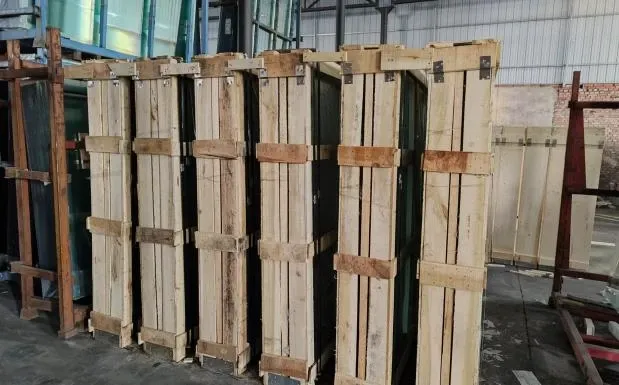Dec . 04, 2024 20:36 Back to list
19mm float glass
Understanding 19mm Float Glass Properties, Applications, and Advantages
Float glass, a fundamental building material, is widely used in various sectors due to its clarity, flatness, and surface perfection. Among the different thicknesses available, 19mm float glass stands out for its unique properties and applications, making it a popular choice in both residential and commercial settings. In this article, we will delve into the characteristics of 19mm float glass, its various applications, and the advantages it offers.
What is Float Glass?
Float glass is produced through a process in which molten glass is floated on top of molten tin. This process yields a smooth and uniform surface, both on the front and back of the glass, resulting in a high-quality product with excellent optical clarity. The term float comes from the way the glass material floats on the molten tin, forming sheets of consistent thickness.
Characteristics of 19mm Float Glass
The thickness of 19mm makes this type of float glass particularly admirable for its strength and durability. Due to its substantial thickness, 19mm float glass provides increased structural integrity which is essential for many applications. It is less prone to breakage compared to thinner glass options, making it ideal for high-traffic areas and locations where safety is a concern.
In addition to its strength, 19mm float glass exhibits superior thermal insulation properties. This is a crucial factor in energy-efficient designs, as it helps maintain indoor temperatures, reducing the energy required for heating and cooling. Furthermore, the thickness of the glass contributes to its sound insulation capabilities, making it effective in minimizing noise pollution.
Applications of 19mm Float Glass
1. Architectural Uses 19mm float glass is commonly used in the construction of large windows, facades, and glass doors in modern architectural designs. Its strength and clarity allow for expansive views while providing structural support.
19mm float glass

2. Furniture Design This type of glass is also featured in high-end furniture, such as tabletops and shelving units. The thick glass not only adds elegance but also ensures longevity and durability, supporting heavier items without risk of breakage.
3. Partitions and Showers In interior design, 19mm float glass is used for creating transparent room dividers and shower enclosures. Its thickness allows for a sense of privacy while still allowing light to penetrate the space, enhancing the ambiance of the room.
4. Display Cases Retail environments often utilize 19mm float glass for display cases. Thanks to its robust nature, it can safeguard valuable items from dust and damage while offering clear visibility to customers.
Advantages of 19mm Float Glass
One of the primary advantages of 19mm float glass is its enhanced safety features. The thickness minimizes the risk of breakage, making it suitable for environments with high foot traffic. Additionally, when broken, it shatters into large shards rather than tiny, sharp particles, reducing the risk of injury.
Another significant benefit is its aesthetic appeal. The clarity and smoothness of float glass enhance the visual quality of any application, making spaces appear more open and inviting. It can easily be treated with various coatings to improve energy efficiency and UV protection without compromising its aesthetics.
Moreover, 19mm float glass can withstand extreme weather conditions, making it an excellent choice for exterior applications. It provides UV protection, reducing fading in indoor areas and protecting contents from sun damage.
In conclusion, 19mm float glass is a versatile, reliable, and aesthetically pleasing material that serves many functions across various sectors. Its robust nature, thermal insulation capabilities, and acoustic advantages make it an excellent choice for architectural, furniture, and display applications. As demand for high-quality glass products continues to rise, understanding the unique features and benefits of 19mm float glass can help consumers, architects, and designers make informed decisions when selecting materials for their projects.
-
Safety and Style with Premium Laminated Glass Solutions
NewsJun.24,2025
-
Reinvents Security with Premium Wired Glass
NewsJun.24,2025
-
Premium Float Glass Line for Modern Architecture
NewsJun.24,2025
-
Low Emissivity Glass for Energy-Efficient Architecture
NewsJun.24,2025
-
High-Performance Insulated Glass Solutions for Modern Architecture
NewsJun.24,2025
-
Elevates Interior Style with Premium Silver Mirror
NewsJun.24,2025
Related PRODUCTS














